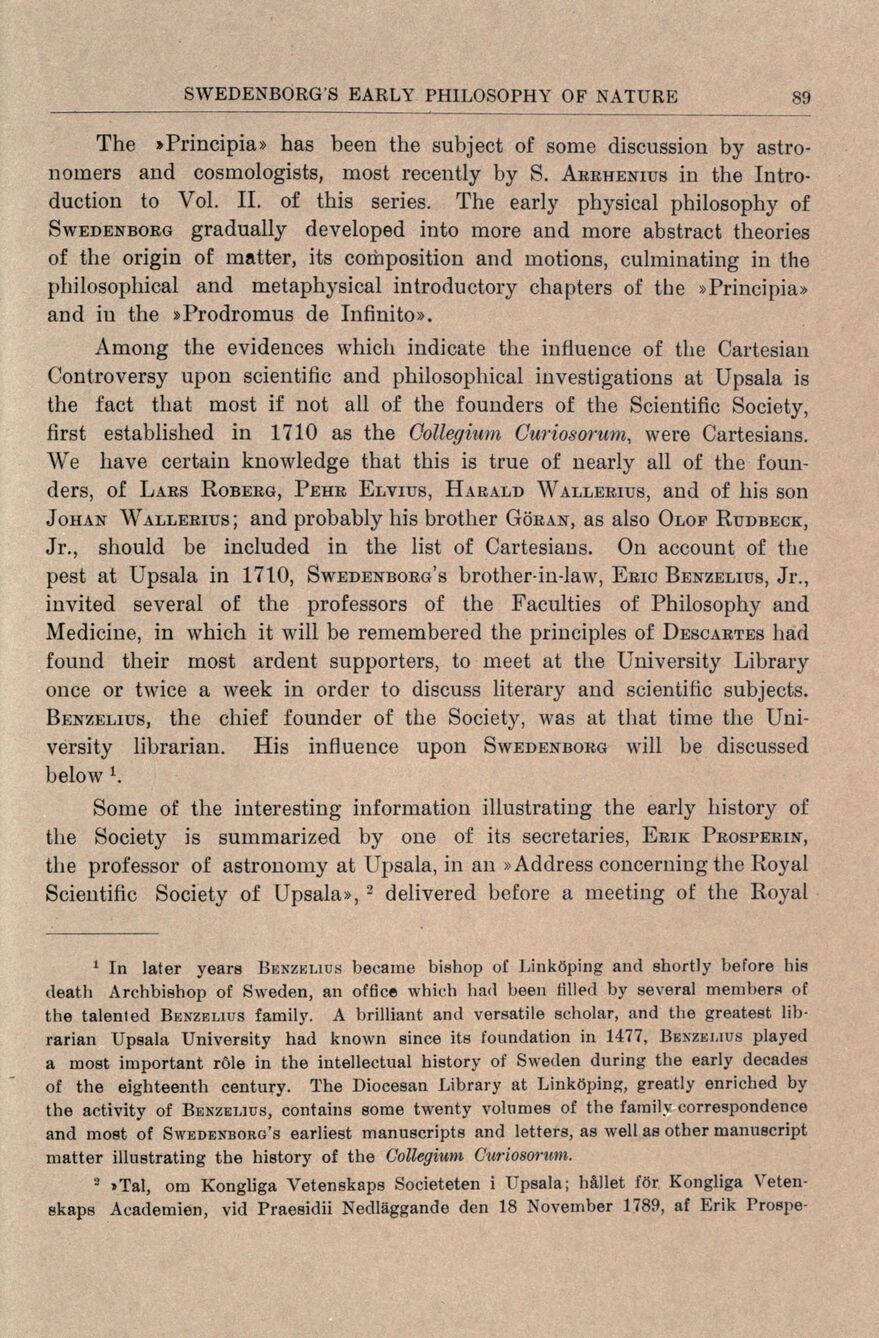
Full resolution (JPEG) - On this page / på denna sida - Sidor ...

<< prev. page << föreg. sida << >> nästa sida >> next page >>
Below is the raw OCR text
from the above scanned image.
Do you see an error? Proofread the page now!
Här nedan syns maskintolkade texten från faksimilbilden ovan.
Ser du något fel? Korrekturläs sidan nu!
This page has never been proofread. / Denna sida har aldrig korrekturlästs.
The »Principia» has been the subject of some discussion by
astronomers and cosmologists, most recently by S. Aerhenius in the
Intro-duction to Vol. II. of this series. The early physieal philosophy of
Swedenborg gradually developed into more and more abstract theories
of the origin of matter, its composition and motions, culminating in the
philosophical and metaphysical introductory chapters of the »Principia»
and iu the »Prodromus de Infinito».
Among the evidences which indicate the infiuence of the Cartesian
Controversy upon scientific and philosophical investigations at Upsala is
the faet that most if not all of the founders of the Scientific Society,
first established in 1710 as the Collegium Curiosorum, were Cartesians.
We have certain knowledge that this is true of nearly all of the
founders, of Lars Roberg, Pehr Elvius, Harald Wallerius, and of his son
Johan Wallerius; and probably his brother Göran, as also Olof Rudbeck,
Jr., should be included in the list of Cartesians. On account of the
pest at Upsala in 1710, Swedenborg’s brother-in-law, Eric Benzelius, Jr.,
invited se veral of the professors of the Faculties of Philosophy and
Medicine, in which it will be remembered the principles of Descartes had
found tlieir most ardent supporters, to meet at the University Library
once or twice a week in order to discuss literary and scientific subjects.
Benzelius, the cliief founder of the Society, was at that time the
University librarian. His infiuence upon Swedenborg will be discussed
below h
Some of the interesting information illustrating the early history of
the Society is summarized by one of its secretaries, Erik Prosperin,
the professor of astronomy at Upsala, in an »Address concerning the Royal
Scientific Society of Upsala», 2 delivered before a meeting of the Royal 1
1 In later years Benzelius became bishop of Linköping and shortly before his
death Archbishop of Sweden, an office which had been filled by several members of
the talented Benzelius family. A brilliant and versatile scholar, and the greatest
librarian Upsala University had known since its foundation in 1477, Benzelius played
a most important role in the intellectual history of Sweden during the early decades
of the eighteenth century. The Diocesan Library at Linköping, greatly enriched by
the activity of Benzelius, contains some twenty volumes of the family correspondence
and most of Swedenborg’s earliest manuscripts and letters, as wTelI as other manuscript
matter illustrating the history of the Collegium Curiosorum.
■ »Tal, om Kongliga Vetenskaps Societeten i Upsala; hållet för Kongliga
Vetenskaps Academien, vid Praesidii Nedläggande den 18 November 1789, af Lrik Prospe-
<< prev. page << föreg. sida << >> nästa sida >> next page >>